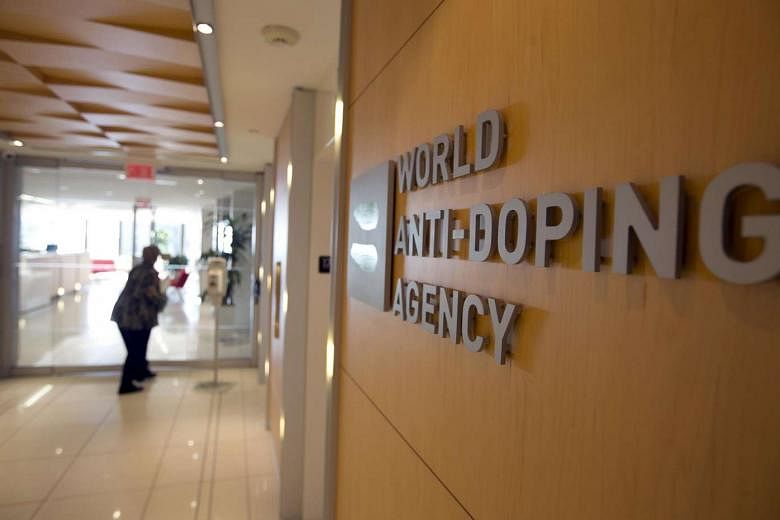RIO DE JANEIRO (AFP) - The World Anti-Doping Agency (Wada) has hit back after Olympic chief Thomas Bach complained about the timing of a bombshell report into Russian doping which has rocked preparations for the Rio Games.
Wada said it had acted as quickly as it could in publishing the report by Canadian expert Richard McLaren, which came less than three weeks before Rio and left the International Olympic Committee (IOC) scrambling for a response.
The McLaren report detailed a plot involving Russia's sports ministry and secret service to switch urine samples using a hole in the laboratory wall.
Bach's IOC stopped short of banning Russia from Rio and instead left decisions over Russian participation to individual sports federations, drawing criticism from some quarters.
On Sunday, Bach criticised Wada for the timing of the McLaren report, and also its oversight of Russia's anti-doping laboratories.
But Wada president Craig Reedie said the anti-doping body had acted as soon as concrete evidence of the Russian scheme came to light.
"Wada's executive committee... supported Professor McLaren's independent mandate, which was to obtain evidence as quickly as possible in the interest of clean athletes," Reedie said in a statement.
"While it is destabilising in the lead-up to the Games, it is obvious, given the seriousness of the revelations that he uncovered, that they had to be published and acted upon without delay."
Wada acknowledged that the McLaren report had been "destabilising for a number of organisations" but said it had been published as quickly as possible.
Russia's cover-up scheme affected 30 sports and was in operation from 2010 until 2015, including during the 2014 Sochi Winter Olympics and 2013 world athletics championships, the McLaren report said.
A 2015 Wada commission, prompted by a German TV expose, found no firm evidence, and it was not until May this year that a former director of Russian anti-doping laboratories spoke about the state-backed scheme in interviews with American media, Wada said.
"It was only when CBS 60 Minutes and the New York Times, on 8 and 12 May 2016 respectively, published the allegations from the former director of the Moscow and Sochi laboratories, Dr Grigory Rodchenkov, that Wada had concrete evidence suggesting Russian state involvement that could be investigated by initiating the McLaren investigation, which we did immediately," Reedie said.
Wada's response follows Bach's comments on Sunday, when he rejected criticism of his handling of the scandal, telling journalists: "The IOC is not responsible for the timing of the McLaren report.
"The IOC is not responsible for the fact that different information which was offered to Wada already a couple of years ago was not followed up.
"The IOC is not responsible for the accreditation or supervision of anti-doping laboratories.
"Therefore the IOC cannot be made responsible either for the timing or for the reasons of this incident we have to face now and which we... have to address now just a couple of days before the Olympic Games."

